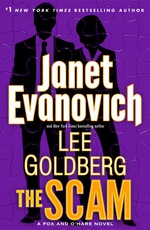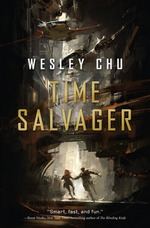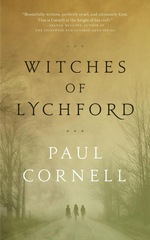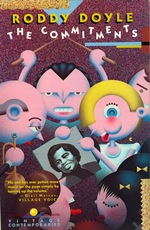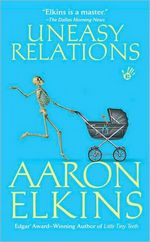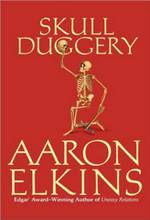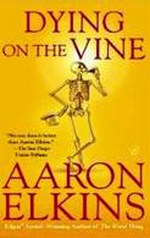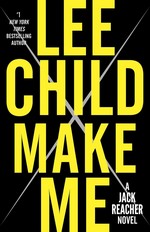 Make Me
Make Me
by Lee Child
Series: Jack Reacher, #20Hardcover, 402 pg.
Delacorte Press, 2015
Read: September 22 – 23, 2015

“We should get a cup of coffee.”
Chang said, “I don’t understand how you drink so much coffee.”
“Law of gravity,” Reacher said. “If you tip it up, it comes right out. You can’t help but drink it.”
“Your heart must be thumping all the time.”
“Better than the alternative.”
I’ve got to get that embroidered on a pillow or something…
I’ve said it before, I’ll very likely say it again — it’s really hard to write about Jack Reacher books after a certain point. What can you say? Reacher comes into a town/city/locale, finds himself in the middle of a mess (or sees a mess and puts himself in the middle of it), beats some people up, probably shoots some others, makes sure the bad guys are punished (in one way or another), tries to save as many of the good guys as possible, probably has a brief affair, and then moves on. Same ol’, same ol’ — told in a tight, fast-paced, almost always exciting way. Lather, Rinse, Repeat as needed.
Every now and then you get something a little different — he’s hired to right a wrong/prevent a wrong, we get a flashback to his time in the military, or whatever. But by and large the books follow that pattern. And for the first 200+ pages, that’s exactly what Make Me gave us.
Curious about the name of the town, Mother’s Rest, and full of theories, Reacher rides in on a train to poke around for a couple of days and indulge his curiosity. It’s not like he has anything else to do. He’s briefly mistaken for a retired FBI agent turned private investigator, Keever, who has gone missing. A colleague, Michelle Chang, is also in Mother’s Rest looking for Keever (who she’s never seen in person, obviously). Now Reacher’s curious about a couple of things, and he starts working with Chang to find Keever. The locals don’t like this and threaten violence (naturally, they need to do so en masse for it to work). Par for the course, right?
But then when they start to learn what prompted Keever to be in Mother’s Rest, things get darker than usual. Don’t get me wrong — there’s a lot of real evil to be found in your typical Lee Child villain. But on the whole, they’re nothing that you can’t find in many mystery/thriller novels/tv shows/etc. Every now and then, however, you get something worse. While it takes a really long time to find out what’s worse about the villains in this novel, once the pieces start to come together — scratch that, when you start to see the pieces, you can tell there’s something twisted and vile going on here. That hunch gets more and more intense each chapter. Until all is revealed and you start to wonder if you left Lee Child behind and wandered into a Thomas Harris or Val McDermid novel.
There will be extended descriptions in a Reacher novel that are this strange mix of repugnant and fascinating — whether he’s describing the mechanism of a particular gun firing, the way a certain punch will affect both the puncher and the punchee, how a particular bone will break, or what have you. But the symposium on suicide methods and Internet culture around them just might have set a new high (or is it low?). Riveting and horrifying.
This book also contains something I’ve never seen in a Reacher novel before. I can’t get into it, but that Child would put Reacher in a situation like this impressed me almost as much as it surprised me.
I’m not 100% convinced this is a 5-star book, but if any Reacher novel is worth it, it’s this one. There are so many of the typical Reacher elements that are tweaked, played with, or broken here — all while telling a heckuva tale, remaining consistent with the character and world. Long time fans will really enjoy this. New readers will want to get their hands on as many of the rest as they can. And all of us will get really frustrated that we have to wait 12 or so months for Jack Reacher #21.
—–



